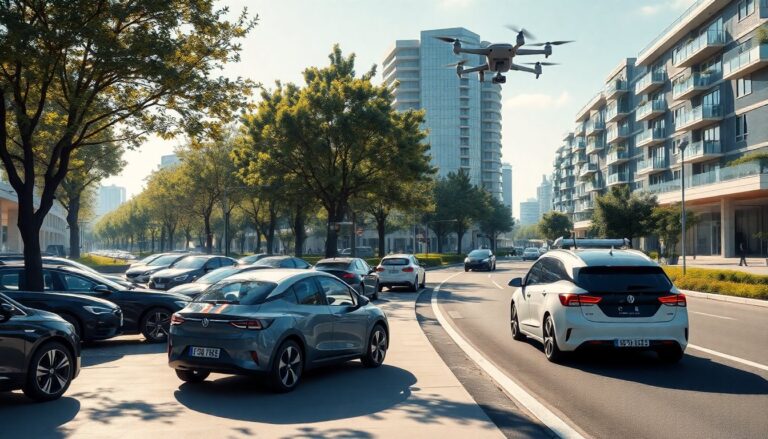Argomenti trattati
The automotive industry is undergoing a profound transformation driven by rapid advancements in technology. Innovations such as electric vehicles, autonomous driving, and smart connectivity are altering not only how we drive but also our perception of mobility. As we navigate through this technological revolution, understanding the trends shaping the future of transportation is essential.
This article explores significant trends in automotive technology, focusing on electric vehicles (EVs), autonomous driving, and the integration of artificial intelligence (AI) in vehicles. Each of these elements plays a pivotal role in redefining the automotive landscape and enhancing the overall driving experience.
The rise of electric vehicles
Electric vehicles have gained considerable traction, largely due to the growing awareness of climate change and the demand for sustainable transportation solutions. As consumers seek greener alternatives, automotive manufacturers are heavily investing in the development of EVs.
Statistics indicate that global EV sales have surged, with over 6.6 million units sold in 2021. This trend is projected to continue as governments implement regulations to phase out internal combustion engines and promote zero-emission vehicles.
Infrastructure development
A major challenge for the widespread adoption of electric vehicles is the availability of charging infrastructure. To address this, numerous stakeholders are collaborating to create a robust network of charging stations. Major companies are investing in fast-charging technologies, facilitating easier recharging for EV owners on long journeys.
Furthermore, expanding charging infrastructure is crucial not just for individual consumers but also for commercial fleets. As businesses transition to electric delivery vehicles, accessible charging options will be essential to ensure operational efficiency.
Advancements in autonomous driving
Another significant trend shaping the automotive industry is the development of autonomous driving technology. Companies like Tesla and Waymo are at the forefront of advancements in self-driving cars, which promise to transform commuting.
Autonomous vehicles utilize a combination of sensors, cameras, and sophisticated algorithms to navigate roads with minimal human intervention. While fully autonomous vehicles remain in the testing phases, many manufacturers are implementing driver-assistance systems that enhance safety and convenience. Features such as adaptive cruise control, lane-keeping assistance, and automated parking are increasingly common in new models.
Safety and regulatory challenges
Despite the potential benefits of autonomous vehicles, numerous challenges persist. Safety remains a primary concern, as the technology must demonstrate reliability under various conditions. Additionally, regulatory frameworks are evolving to ensure these vehicles meet safety standards and can integrate into existing traffic systems.
Governments and industry leaders are working together to establish guidelines for testing and deployment, ensuring the transition to autonomous driving prioritizes public safety.
Integration of artificial intelligence
This article explores significant trends in automotive technology, focusing on electric vehicles (EVs), autonomous driving, and the integration of artificial intelligence (AI) in vehicles. Each of these elements plays a pivotal role in redefining the automotive landscape and enhancing the overall driving experience.0
This article explores significant trends in automotive technology, focusing on electric vehicles (EVs), autonomous driving, and the integration of artificial intelligence (AI) in vehicles. Each of these elements plays a pivotal role in redefining the automotive landscape and enhancing the overall driving experience.1
Challenges and ethical considerations
This article explores significant trends in automotive technology, focusing on electric vehicles (EVs), autonomous driving, and the integration of artificial intelligence (AI) in vehicles. Each of these elements plays a pivotal role in redefining the automotive landscape and enhancing the overall driving experience.2
This article explores significant trends in automotive technology, focusing on electric vehicles (EVs), autonomous driving, and the integration of artificial intelligence (AI) in vehicles. Each of these elements plays a pivotal role in redefining the automotive landscape and enhancing the overall driving experience.3
This article explores significant trends in automotive technology, focusing on electric vehicles (EVs), autonomous driving, and the integration of artificial intelligence (AI) in vehicles. Each of these elements plays a pivotal role in redefining the automotive landscape and enhancing the overall driving experience.4

